Authored by Slackbastard
Introduction
On November 28, 2010 WikiLeaks—in conjunction with other major media organisations—began publishing classified United States diplomatic cables, detailing correspondence between the US State Department and its diplomatic missions around the world.
The publication of these cables has had an enormous impact upon world affairs. In its 2011 Annual Report, the human rights organisation ‘Amnesty International’ nominated the publication as a major catalyst in a series of uprisings against repressive regimes in the Middle East and North Africa—the so-called ‘Arab Spring’.
Not everyone has welcomed the revelations contained in the WikiLeaks publications quite so warmly, however, and governments around the world have begun to implement measures designed to stifle such activity.
In Australia, these measures are being implemented by way of a series of amendments to laws governing the operations of the state’s intelligence and security apparatus.
 For the past four or five days, a copy of a leaked confidentiality agreement from WikiLeaks has been a hot topic among those who follow news and politics. Those that have regularly scrutinized WikiLeaks, who have typically gone along with any meme in the media that shines a light on the organization’s imperfections, took the posting of this agreement as an opportunity to focus on how this showed complete hypocrisy. Those sympathetic and supportive, on the other hand, saw this as a moment when they needed to get out in front and defend the organization.
For the past four or five days, a copy of a leaked confidentiality agreement from WikiLeaks has been a hot topic among those who follow news and politics. Those that have regularly scrutinized WikiLeaks, who have typically gone along with any meme in the media that shines a light on the organization’s imperfections, took the posting of this agreement as an opportunity to focus on how this showed complete hypocrisy. Those sympathetic and supportive, on the other hand, saw this as a moment when they needed to get out in front and defend the organization.
I was one of those people who found the renewed push to further de-legitimize WikiLeaks concerning. I posted an analysis of the confidentiality agreement and later posted a comprehensive and thought-out critique of David Allen Green's work on WikiLeaks. (Green is the blogger for the New Statesman, who helped make the agreement a big story.)
As the story was breaking, I received a Twitter message, “WikiLeaks Threatens Its Own Leakers With $20 Million Penalty" http://bit.ly/klgAnz What says @kgosztola?” The message came from Roni Weiss, a personality on a podcast show called “Don’t Worry About the Government.” I told him he should have me on his program to share my opinion.
On Facebook, we went back and forth on the “Don’t Worry About the Government” show page as I tried to get him to do a segment with me. He stated his position, “My biggest concern is that I just don't have much to say about it…My stance is basically: This looks bad for them, publicity-wise, and beyond that, I don't really care, because they do a lot of things that look bad.
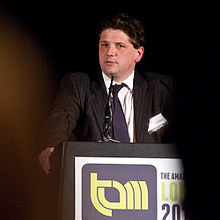 David Allen Green, legal correspondent for the New Statesman out of the UK, has spent the last few days calling attention to a leaked confidentiality or non-disclosure agreement (NDA), which he revealed in a blog post on May 11. Green has posted a second post on the agreement on his blog, Jack of Kent, and will be posting a summary to the New Statesman website on May 16, which last time I checked, he intends to glibly title, "NDAs for Dummies."
David Allen Green, legal correspondent for the New Statesman out of the UK, has spent the last few days calling attention to a leaked confidentiality or non-disclosure agreement (NDA), which he revealed in a blog post on May 11. Green has posted a second post on the agreement on his blog, Jack of Kent, and will be posting a summary to the New Statesman website on May 16, which last time I checked, he intends to glibly title, "NDAs for Dummies."
I published an initial analysis of the leaked agreement on WL Central. The analysis was featured as a “Best Opinion” in an “Irony Alert” blog post on the agreement on The Week’s website.
Green, who is the blogger who was the first to draw attention to the agreement, called it a “draconian and extraordinary legal gag that WikiLeaks imposes on its own staff” and, in particular, focused on Clause 5 of the agreement that “imposes a penalty of ‘£12,000,000 – twelve million pounds sterling’ on anyone who breaches this legal gag.”
In his follow-up post, which cites the analysis I wrote, he groups me with others who “sought to explain the document away: to normalize it and to contend that it is somehow unexceptional.” That is true. That is what I did.
He adds:
It may be well that for WikiLeaks partisans (like "the Birthers" in the United States), nothing - not even a disclosed document- will shift their adherence to their cause.
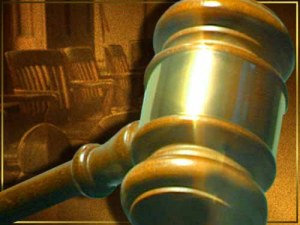 Edited podcast now posted.
Edited podcast now posted.
There are three high profile federal grand jury investigations. For each one, the argument could be made that the grand jury is chilling political action or seeking to criminalize people for associating with certain groups that are not charged with committing any crimes but instead are unsavory and illegitimate to the government.
The investigations being referred to are the investigation into Anonymous that is based in San Jose, California, the investigation into antiwar and international solidarity activists that is based in Chicago, Illinois, and the investigation into WikiLeaks that is based in Alexandria, Virginia.
Joining the "This Week in WikiLeaks" show this week is Jim Fennerty, who is a Chicago-based attorney defending the activists who were raided by the FBI in September of last year and now face a grand jury investigation. He is with the National Lawyers Guild and will be here to talk about his work defending the activists and will talk about the grand jury process and what those following the WikiLeaks might see happen in Alexandria as the investigation moves forward.
To listen to the show, click play on the widget below:
You can also listen to the show by going to this page. The podcast will appear in the list of "CMN News" episodes. Click the latest "This Week in WikiLeaks" episode and download. (The podcast can also be downloaded off of iTunes by searching for "CMN News" and then downloading the latest podcast.)
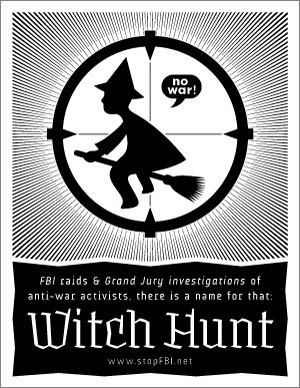
In the final week of January, twelve anti-war, labor and international solidarity activists were expected to appear before a grand jury in Chicago. They refused to go before the grand jury.
These activists from Chicago, the Twin Cities in Minnesota, and other areas have been subpoenaed over the past months. Several of the activists had their homes raided. Documents, cell phones, storage disks, computers, and children's artwork were seized from their home. The subpoenas indicated the FBI was looking for evidence that the activists had provided "material support for terrorism." And, it was discovered that the FBI had an informant, who went by the name of "Karen Sullivan," infiltrate an anti-war group in the Twin Cities.
This "witch-hunt" began on September 24th and, since then, U.S. Attorney Patrick Fitzgerald has been working to get activists to testify before a grand jury in Chicago. So far, all the activists have refused to participate in this "fishing expedition."
WL Central recently began posting coverage of this story. And, as the grand jury investigation into WikiLeaks and those who might be linked to WikiLeaks advances, it seems appropriate to provide context and shine a light on other stories of suppression of freedom and civil liberties in the United States.
Here is a profile of one of the activists (which I wrote and originally posted at OpEdNews.com in January):
The BBC first announced this morning that the High Court of England and Wales* has listed court dates of 12-13 July to hear Julian Assange's appeal against extradition from the UK to Sweden.
BBC reporter Dominic Hurst tweeted shortly after his first announcement that "Assange's appeal is against Judge Riddle's ruling that extradition to Sweden wouldn't breach his human rights," a summary repeated in this report from the Guardian.
Mark Stephens @markslarks, Assange's UK solicitor, then replied to a first question on Twitter from a WLC reporter: "dates correct. Detail wrong." When questioned further by another WLC reporter hoping for a lawyerly update, he tweeted: "will come when I return to the UK."
There is obviously some time for precising our understanding of what the appeal may entail. Parliamentary review of the European Arrest Warrant (EAW) is also expected in June [citation needed and welcomed].
* NB: Scotland's legal system has always been independent from that of England and Wales.
Amidst the cacophony of war crimes and crimes against humanity in Libya perpetrated by forces loyal to Muammar Gadaffi - which this writer finds unbearable - (and for which the command principle at least holds him ultimately responsible) including murders, torture, bombing and artillery destruction of civilian infrastructure and the like, the case of Eman al Obaidi stands alone as one of particular importance as well as nauseating repugnance.
Firstly we must acknowledge the presumption of innocence within the particular context of Eman’s allegations. This was brought to my attention by a tweet from Bianca Jagger who said on 28th March:
I have the most enormous respect for Bianca Jagger and found her vehement statement on this matter appropriate on the face of the circumstances in the arena of probabilities but not necessarily in the arena of presumptive law. In one respect the presumption needed further explanation: the LA Times headlines clearly were missing some nuance in that their traditional headline using the word ‘alleged” implicitly acknowledged the presumption, but they erred in not commenting contextually – the probability arena.
UK MP quizzes Crown Prosecution Service over Assange extradition case
Liberal Democrat MP Julian Huppert has raised the relevance of the Human Rights Act to the role played by the UK Crown Prosecution Service (CPS) in Sweden's attempt to extradite Julian Assange.
In reply to Mr Huppert's questions during a joint committee hearing on human rights, Keir Starmer, director of Public Prosecutions, admitted that the CPS "are bound by the Human Rights Act, and we are bound by our duties to the court." However, he added that human-rights issues would be for the courts to determine rather than for the CPS.
Impenetrable though those legal distinctions may appear in the abstract, parliamentary attention to possible politicization of law is significant where it appears that the boundaries between law and politics are not clear and stable.
Australian MP and shadow minister reflects on WikiLeaks, Spycatcher, and freedom of the press
Malcolm Turnbull (L-Wentworth), former leader of the Opposition in the Australian House of Representatives and the current shadow minister for Communications and Broadband, spoke to Sydney University Law School on 31 March about his experiences representing former MI5 officer Peter Wright, author of Spycatcher, and about the concerns and responsibilities the Australian government faces relative to Assange's own situation and to WikiLeaks publications generally.
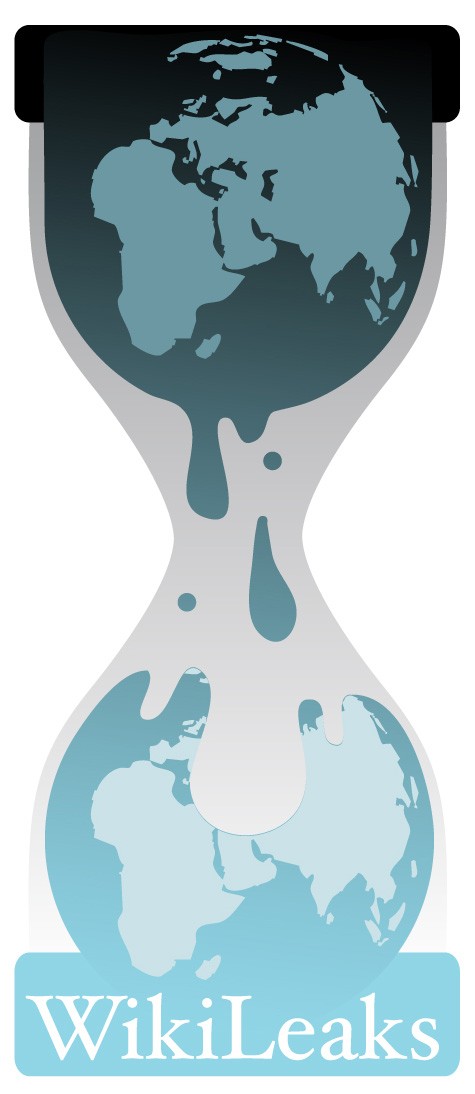 Debate: This House believes whistleblowers make the world a safer place
Debate: This House believes whistleblowers make the world a safer place
On 9 April, the Frontline Club and the New Statesman will host a public debate in which Julian Assange will speak for the proposition "This House believes whistleblowers make the world a safer place."
The debate will be chaired by Jason Cowley, editor of the New Statesman; other panelists have yet to be announced. The event will be held at Kensington Town Hall at 5 pm GMT; it is already fully booked but should be both livetweeted and filmed.
Rob Stary, Australian lawyer for Julian Assange and WikiLeaks: interview
Last week the WikiLeaks Australian Citizens Alliance (WACA) posted the video of an interview they did with Rob Stary, Julian Assange's lawyer in Australia, before the WikiLeaks Free Speech Forum in Melbourne on 4 February.
Some of the interview focuses on legal and political issues particular to Australia. More generally, however, Stary challenges the claims of a number of governments that their legal manoeuvres against Assange and/or WikiLeaks are unaffected by politics. His analysis of the international interplay between law and politics is a fine summary of the state of play so far.
A major panel discussion was recently put on by New York University Law. The panel featured various law, Internet, journalism and national security experts discussing WikiLeaks' release of State Department cables. The individuals at the panel included:
Simon Chesterman, Global Professor of Law, Director, New York University School of Law Singapore Program
Norman Dorsen, Frederick I. and Grace A. Stokes Professor of Law, Co-Director, Arthur Garfield Hays Civil Liberties Program
Brian Markley, Partner, Cahill Gordon & Reindel
Burt Neuborne, Inez Milholland Professor of Civil Liberties, Legal Director, Brennan Center for Justice
Samuel Rascoff, Assistant Professor of Law
Jay Rosen, Associate Professor of Journalism, New York University, Author, PressThink
Katherine Strandburg, Professor of Law
Diane Zimmerman, Samuel Tilden Professor of Law Emeritus
Moderator:
Ira Rubinstein, Senior Fellow, Information Law Institute
Panelists each discussed what worried them most about the response to WikiLeaks' leaking of cables and other documents in the past year. The Panel then got into some more specific issues.
Samuel Rascoff, who came to NYU from the New York Police Department, opens the panel saying:
On 10th March 2011 Australian Prime Minister Julia Gillard made a speech to the US Congress. It was notable for one reason, the US media appeared barely to report it—Google searches show Australian entries page after page—and perhaps that’s because the US media market for show ponies, seals and canines performing obsequiously for an audience is already saturated.
Crafted for a US audience it was as Hugh White (Australian National University professor and a former senior Defence Department official) said: a piece of policy-free puff…I suppose she wanted the Americans to like her, but she decided not to say anything serious to them.
Our leaders never say much that is seriously an assertive, independent point of view to the USA. This is of course as befits a thoroughly one sided relationship characterised by ultra obsequiousness by an almost endless line of Australian prime ministers from Robert Menzies who begged the US to join in the Vietnam war; Harold Holt’s—all the way with LBJ and more lately John Howard who jumped on the Bush orchestrated litany of lies bandwagon, otherwise known as the second Iraq war (and absurdly incorporating a war on an abstract noun--terrorism) as if we somehow owed an eternal debt--which can never be repaid--as a satrapy of the USA and our prime ministers are the satraps. Or as liberal party Senator Brandis, leaker of the ‘Ratty’ label might have said in the case of John Howard, a ratsap.
Wednesday's forum on the tribulations surrounding WikiLeaks was timely and a much-needed shot in the arm for political discourse in Australia.
Framed through the lens of Julian Assange and WikiLeaks' David and Goliath struggle against the machine, the dominant theme of the night was the questioning of Australia's political identity and sovereignty in its unbalanced relationship with the United States, and how this imbalance has manifested itself in the lack of political and legal support provided to its citizens. Hence, some parallels between Julian Assange and previous Gitmo detainees David Hicks (present in the audience) and Mamdouh Habib were repeatedly made. On some levels, this may be seen as incongruous - Hicks and Habib were terror suspects, whereas Assange, despite hostile rhetoric, has not been accused of terrorism by a prosecuting authority - but the import of drawing these parallels is the same.
Open to the public, the seats inside Sydney's stately Town Hall filled up quickly, no doubt due to the caliber of the panelists rather than the rain pouring outside. The night's proceedings were emceed by Mark Kostakidis, veteran of Australian public broadcaster SBS. The speakers were the award-winning journalist John Pilger, member for Australian Federal Parliament and famous Iraq war whistleblower Andrew Wilkie, and tireless human-rights campaigner Julian Burnside QC.
Indeed, there were no "hawks" on the panel to provide opposition to the overall theme of libertarianism - not that the audience present minded, for this forum was a chance to escape the endless diatribes of said hawks, who are already in the privileged position of being able to pollute the airwaves, print and the web, stifling such fora under hackneyed pretexts of "national security" (to name but one).
A whole new avenue of the Wikileaks story opened up in late November, early December 2010 when the Prime Minister of Australia said the following about Julian Assange:
It’s a grossly irresponsible thing to do and an illegal thing to do.
This writer took umbrage and responded with a letter posted here on 4th December 2011. Many others were outraged and spoke out.
Immediately prior to that, on 29th November 2010 the Federal Attorney General Robert McClelland had said:
From Australia's point of view we think there are potentially a number of criminal laws that could have been breached.
A defence taskforce which had been monitoring Wikileaks would become a "whole-of-government taskforce", Mr McClelland said.
According to the Sydney Morning Herald today 12th March 2011:
The Australian government discussed the charge of treason - the most serious of federal offences and one that carries a mandatory life sentence - when it examined the WikiLeaks matter last year.
The advice, in a departmental briefing for the Attorney-General, Robert McClelland, was among several documents published yesterday by the department in response to Senate estimates questions.
It was provided by a senior officer in the Attorney-General's Department in September, after WikiLeaks published 90,000 US military reports filed during the war in Afghanistan.
Julian Assange has agreed to address the Cambridge Union on 15 March, reports the student paper The Tab.
The Union, officially the Cambridge Union Society, is a debating society founded in 1815 and is distinct from the student union. In addition to its weekly debates, it welcomes distinguished speakers from around the world.
The event will be open to Union members only. There is no word yet whether it might be otherwise transmitted.
Via @MarksLarks on Twitter
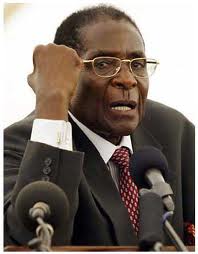 Robert Mugabe and his Zanu PF party have stepped up the customary rampage over human rights in Zimbabwe. Amnesty has issued an alert stating that with over 60 currently held in detention and many allegedly tortured, activists are facing a major clampdown.
Robert Mugabe and his Zanu PF party have stepped up the customary rampage over human rights in Zimbabwe. Amnesty has issued an alert stating that with over 60 currently held in detention and many allegedly tortured, activists are facing a major clampdown.
Previously on WL Central we reported on the arrest, imprisonment, and torture for some, of Munyaradzi Gwisai, the International Socialist Organisation (ISO) general coordinator, and 45 others on February 19. They were charged on the 23rd with treason, which carries the death penalty, or subverting a constitutionally elected government, for which the maximum penalty is 20 years imprisonment, for watching a video of the uprising in Egypt. More activists have been arrested in Bulawayo and Manicaland province.
SW Radio Africa reports a man in Bulawayo was arrested over a Facebook comment he posted on February 13. Vikas Mavhudzi of Old Magwegwe, is being charged with “subverting a constitutional government” after posting a message on a Facebook page allegedly belonging to Prime Minister Morgan Tsvangirai: “I am overwhelmed, I don’t want to say Mr. or PM what happened in Egypt is sending shockwaves to dictators around the world. No weapon but unity of purpose worth emulating, hey.” He was arrested on February 24th and accused of “advocating or attempting to take-over government by unconstitutional means”. He has been refused bail and was remanded in custody till March 9th.
Amnesty has requested urgent action be taken in the case of Qatari blogger Sultan al-Khalaifi, who was arrested on March 2 and is being held incommunicado. Amnesty is concerned that he is at risk of torture or other ill-treatment.
Amnesty is requesting people to write
Urging the authorities to ensure that Sultan al-Khalaifi is protected from torture and other ill-treatment, and is allowed prompt and regular access to a lawyer of his choosing, his family and any medical treatment he may require;
Asking for details of any charges he faces to be made public and calling on the authorities to ensure that any legal proceedings against him conform to international fair trial standards.
Human rights organization Alkarama reports the arrest of three other Qatari nationals as well and says at nine o'clock at night on March 1, "a number of state security agents" raided Khulaifi's Doha residence and car and took him away. An officer informed his wife that the agents were sent by the Attorney General, but they had no judicial warrant.
Alkarama feels the arrest is a result of Khulaifi's human rights activities. He had served as Secretary-General of the Alkarama Foundation until the beginning of 2010, before leaving to found a new organization for the defense of human rights and he had contacted them recently regarding three cases of arbitrary detention which Alkarama then appealed to Qatari authorities about. The three individuals incarcerated are: Abdullah Ghanem Mahfouz Muslim Jouar, Salim Hassan Khalifa Rashid Al Kuwari and Hamad Rashid Al-Marri.
On 2nd March 2011 at 9.15am a meeting was held, organised by Andrew Laming (Liberal Party MP Bowman Qld) at Parliament House Canberra to allow federal parliamentarians who wished to attend, some insights into the matters of Julian Assange facing extradition from the UK to Sweden, and facing (subject to that extradition process) a possible trial in Sweden and another possible extradition to the USA thereafter.
Among others, MPs Andrew Laming, Malcolm Turnbull, Doug Cameron and Sarah Hanson-Young were in attendance, along with parliamentary staff members.
Three speakers made themselves available for oral presentations and questions: Greg Barns, barrister from Tasmania; former Australian diplomat Tony Kevin and Peter Kemp, solicitor from NSW. The latter two made written material available for the parliamentarians, reprinted below with their permission. Written material was also provided by Jennifer Robinson, UK counsel for the Julian Assange. That material is reprinted with permission here.
After short addresses by each of the three speakers, the meeting was opened for questions and summaries of each speaker in the proceedings appears below, after biographies.
Appeal to Cecil B. Wilson, MD, president of the American Medical Association
Rotterdam 16/02/2011
Dear Dr Wilson,
I wish to alert you, as the president of the American Medical Association (AMA), to possible abuse of the medical profession, on US soil, by those who may engage in practices amounting to torture.
Private Bradley Manning is the alleged source of a leak of documents from
the American wars in Iraq and Afghanistan and from cables between American
diplomats worldwide to website/publisher WikiLeaks. This has made him America's foremost political prisoner. At the moment he is kept in conditions similar to solitary confinement on the Quantico Marine base in Virginia. This has created a genuine concern worldwide for the health of Mr Manning and the legitimacy of his situation. The following article basically says it all:
PayPal, an online payment-transfer service, has apparently developed reservations about the Sixth Amendment to the US Constitution, which reads:
In all criminal prosecutions, the accused shall enjoy the right to a speedy and public trial, by an impartial jury of the state and district wherein the crime shall have been committed, which district shall have been previously ascertained by law, and to be informed of the nature and cause of the accusation; to be confronted with the witnesses against him; to have compulsory process for obtaining witnesses in his favor, and to have the assistance of counsel for his defense.
As spokespersons for the Bradley Manning Support Network have observed, there is no obligation under US law for a private company to restrict fund-raising for an accused person:
Peter King (R-NY), chair of the US House Committee on Homeland Security, yesterday reintroduced legislation that would extend the definition of espionage to include publishing the names of sources who collaborate with the US military or intelligence services.
King had proposed similar legislation in 2010. Last week three members of the Senate Committee on Homeland Security, led by chairman Joe Lieberman (I-CT), reintroduced a similar bill, known as the SHIELD Act. In US congressional parlance, SHIELD appears to mean "Securing human intelligence and enforcing lawful dissemination."
Many students of the First Amendment have pointed out the dangers to journalism and publishing in the US if the definition of espionage (traditionally understood to involve intentional and interested transmission of information to a foreign power) were to be so broadened. The ACLU argues:
Theme by Danetsoft and Danang Probo Sayekti inspired by Maksimer